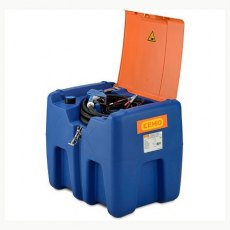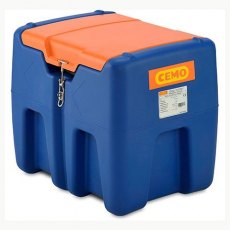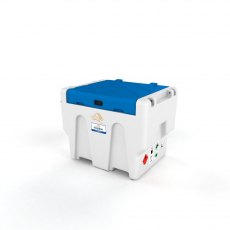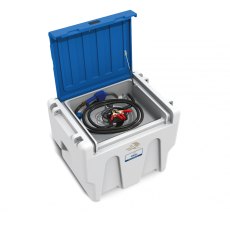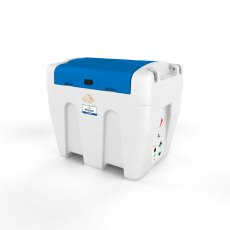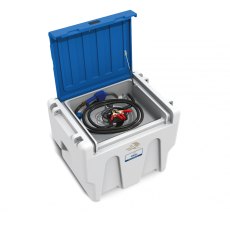AdBlue Portable Dispensing Tanks FAQs
What Is AdBlue?
AdBlue is a 32.5% aqueous solution of urea that is used to reduce nitrogen oxide (NOx) emissions from diesel engines. NOx emissions from diesel engines are a significant contributor to air pollution and have been linked to a range of negative environmental and health effects. AdBlue is a key component of selective catalytic reduction (SCR) systems, which use a catalyst to convert NOx into nitrogen and water vapor.
SCR systems work by injecting AdBlue into the exhaust gas stream of a diesel engine, where it reacts with the NOx to form nitrogen and water vapor. The nitrogen is a naturally occurring component of the air we breathe, and the water vapor is harmless and dissipates quickly. By reducing NOx emissions, SCR systems help diesel engines meet increasingly stringent emissions standards and reduce their environmental impact.
AdBlue is a non-toxic and biodegradable product, and it is safe to handle and store. It is widely used in the transportation, agriculture, and construction industries, as well as in power generation and other heavy-duty applications. Because AdBlue is used in such large quantities, it is typically stored in bulk tanks and dispensed as needed, reducing the number of deliveries and associated emissions.
In summary, AdBlue is a critical component of SCR systems, and its use has helped reduce NOx emissions and improve air quality in many applications.
What are AdBlue plastic tanks made of?
AdBlue plastic tanks are typically made of high-density polyethylene (HDPE), a durable and chemical-resistant material that is well suited for storing AdBlue
How do I install an AdBlue plastic tank?
AdBlue plastic tanks are designed for easy installation and typically come with all the necessary hardware and fittings. The tank should be installed in a suitable location, preferably on a level and stable surface, and connected to the AdBlue dispensing system.
How do I maintain an AdBlue plastic tank?
AdBlue plastic tanks require minimal maintenance, but it is important to keep them clean and free from contamination. The tanks should be periodically inspected for signs of damage or leaks, and any repairs should be made promptly to prevent contamination of the AdBlue.
Can AdBlue plastic tanks be used outdoors?
Yes, AdBlue plastic tanks are suitable for outdoor use, but they should be protected from direct sunlight and extreme weather conditions. The tanks should also be placed in a location where they will not be exposed to heavy traffic or impact damage.
How much AdBlue can a plastic tank hold?
AdBlue plastic tanks are available in a range of sizes, from small drums to large bulk tanks. The capacity of a tank will depend on its size and design, but typical capacities range from several hundred liters to several thousand liters.
What is the lifespan of an AdBlue plastic tank?
AdBlue plastic tanks are designed to last for many years, but their lifespan will depend on factors such as the quality of the tank, the storage conditions, and the frequency of use. Proper maintenance and regular inspection will help extend the lifespan of the tank.
Can I store Adblue in a fuel tank?
AdBlue is a corrosive material and must not be added to the fuel tank. Damage can be caused to the tank and corresponding pipework if mixed. If in the unlikely event AdBlue is accidentally added to a fuel tank seek professional help to drain and flush the AdBlue solution from fuel tank.


